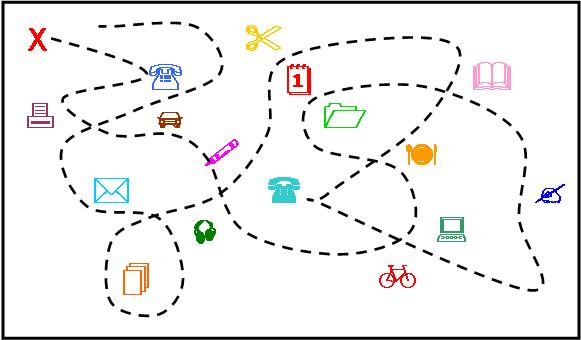First, create a collection zone to collect stuff - a table, a space on the floor, etc. Set up your 4 Boxes as mentioned in the previous post.
Now clear everything off of your desk (except your computer or any stuff that is wired up or hard to move). If you're going to organize the whole desk, clear out all the drawers too.
As you clear off the desk, place each item you remove from the desk into one of the 4 boxes you set up.
Keep the Trash and Recycle boxes handy as you may want to add to them as you go through the other boxes.
In fact, you may want to use two Recycle boxes - one for paper and stuff to go to recycling and one for things you want to donate or give away.
Now, take a look at your Store Box. What might you find in it?
- outdated files - do you really need them? If not, trash them. If yes, file them in a storage space that you don't need to regularly acess.
- office supplies - extra packages of paper or enevelopes, for example, could be stored in a closet or file cabinet.
- Odds & sorts - consider how necessary these are. Can any be added to your Trash or Recycle boxes? For the things you really do need or want to keep, assign them a Storage "home" and put them there now.
- your computer & keyboard
- phone
- pens
- papers
- current files
We'll take a look at filing in a future post, as it has a number of things to consider on its own.
But this should already give your desk a much cleaner appearance - and should make working there much easier for you.







